PHP powers popular websites such as Facebook and Wikipedia, and is the most widely used programming language on the web. You can quickly create web applications with PHP.
The PHP programming language and the application frameworks it supports are widely used by developers around the world. It is much easier to build robust applications using PHP frameworks if you are using a stable and well-tested foundation.
In addition, frameworks can help make the PHP language more convenient to use, which makes them a good choice for demanding applications. In order to create reliable applications in a reasonable time frame, software developers need to use design patterns, modules, and tools. A framework can make a big difference here.
We’ll discuss the best PHP frameworks and understand their strengths and weaknesses in this Blog. You will learn which PHP framework covers your specific web development needs after reading this blog.
Best php framework to learn and use in your next web project
1. Laravel
PHP’s most popular framework is Laravel. First released in 2011 by Taylor Otwell, the framework has grown to become a mature framework with hundreds of contributors and millions of installations.
It uses its own coding language called Blade to create HTML layouts, which is based on an MVC architecture. Laravel is easy to use and understand because it uses Eloquent ORM to connect to databases.
Among the features that make Laravel unique are its range of packages, applications, and features that make development faster and easier. More than 50% of PHP developers use Laravel. It can be used for building any type of application, such as SaaS, eCommerce, and others. The ease of use makes it popular with small businesses, while its powerful features make it attractive to large enterprises.
2. Symfony
With its mature framework, Symfony revolutionized PHP development. It is a framework, but it also provides reusable components that can be used within any PHP project. Numerous open-source tools use these components, including Laravel.
Its large community, variety of features, and robustness make Symfony a top PHP framework.
A more complex web project requiring predictability, support, and optimization would be better suited to this software. Due to the numerous drivers that Symfony has for enterprise databases, it is also suitable for enterprise-level projects.
3. Cake PHP
Using CakePHP, you can quickly build PHP applications with minimal configuration. You can use it to code the business logic of your application thanks to its built-in features. In addition, it provides a flexible database access layer and powerful features that allow you to create both simple and complex software systems.
It was one of the first MVC frameworks to enter PHP’s development ecosystem in the early 2000s, and it has since matured into a framework with a great deal of functionality. In its convention-based setup, CakePHP stands out from the crowd. CakePHP runs without any configuration when a database is set up with specific naming conventions.
4. Phalcon
As a PHP extension in C, Phalcon is not written in PHP, but is delivered as a PHP extension. Does that mean you will need to write C yourself? Certainly not. Due to the fact that it isn’t written in PHP and is directly compiled from C, it is incredibly fast! In comparison with other frameworks, Phalcon can process more requests per second.
Additionally, Phalcon offers many features such as ORM, caching, templating, and security in addition to its incredible speed. Several large companies use Phalcon when performance is critical.
5. Yii
The Yii framework is an open-source framework built on PHP. By focusing mainly on core functionality, it is based on OOP and MVC patterns.
Yii is recommended for building performant web applications since it’s faster than other frameworks. The platform can be used for a multitude of tasks, including blogging, SaaS applications, and social media websites. See the YiiPowered website for a list of projects created with Yii.
6. Codelgniter
Developers can rapidly create new projects with CodeIgniter, an MVC framework based on PHP. You can use it like a toolkit to speed up development because it is not a restrictive framework.
CodeIgniter does not enforce the MVC pattern, but it encourages you to use it. Modern web applications use features such as to cache, multi-database support, routing, and caching. These features can be used in flexible ways and are neatly packaged.
7. Slim Framework
Microframeworks like Slim are written in PHP. It enables you to create simple yet powerful APIs and web apps with fewer features than typical frameworks.
It helps you quickly build applications by including routing, middleware, and advanced request handling features. Slim does not include features that can be found in most frameworks such as database access tools, but can be installed using Composer as outside dependencies.
Scalable systems and microservices can be built with Slim, including restful APIs for single-page applications (SPAs).
Hope this blog helped you gain a better understanding about the popular php frameworks and the best php frameworks for web development. Whichever PHP framework you are about to choose, pur team can help you make the most out of it. Contact our team today!





 +91 8714 60 30 48
+91 8714 60 30 48
 + 971 44 92 87 30
+ 971 44 92 87 30




